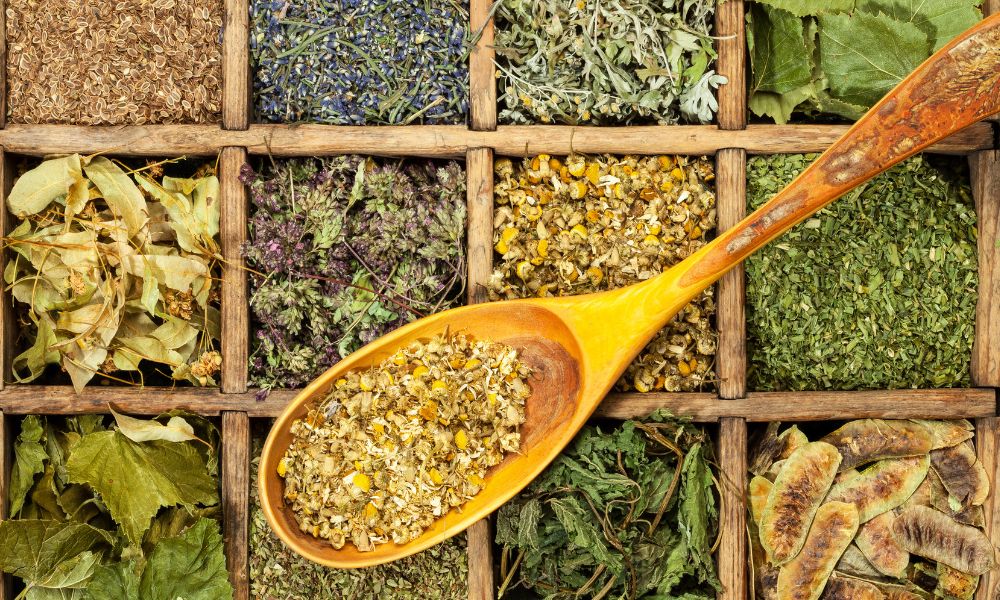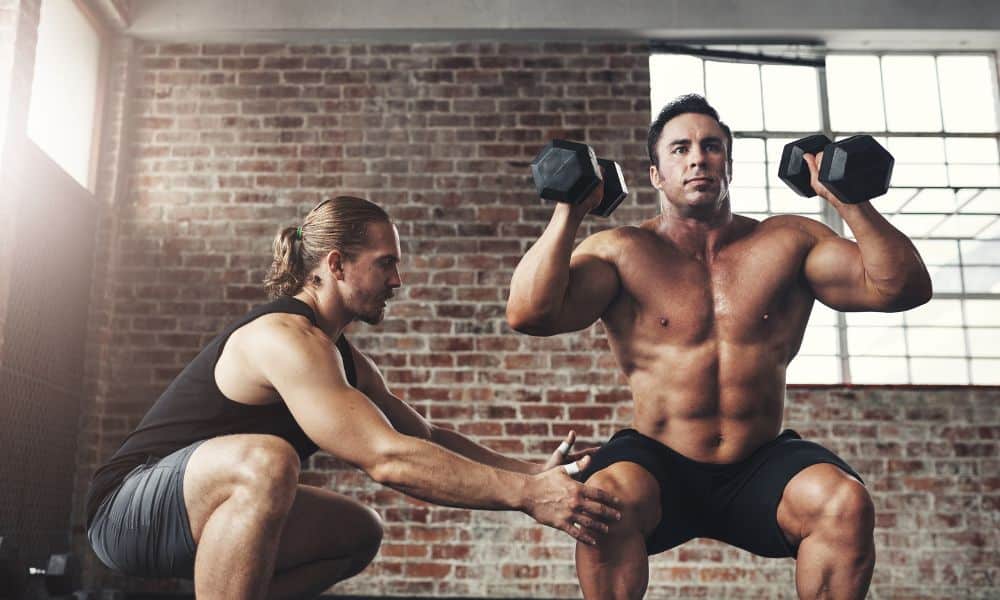Are you looking for ways that herbs benefit weightlifters? Alternative herbal extracts have gained tremendous popularity in the recent past.
Indeed, an ever-increasing number of bodybuilders and weightlifters abandoning synthetic performance-enhancing substances for fitness supplements formulated with natural extracts.
Fitness experts recommend herbal extracts because supplements formulated with these substances lower abuse risks. In addition, it’s possible to consume specific herbs all year round without worrying about developing addiction or dependency. Besides, overdose incidences are considerably lower when using natural herbs for performance enhancement than synthetic compounds.
But as a weightlifter who’s never used herbs before, you could wonder precisely how these products can benefit your fitness routine. Well, your worries end here. This post highlights several ways herbs help weightlifters.

1. Increase Energy Levels
Weightlifting requires a decent amount of energy to perform. To keep going, a weightlifter needs to replenish its energy reserves constantly. That energy can come from herbs that stimulate the body and mind.
Many herbs, such as cannabis and kratom, have a reputation for stimulating effects. Such herbs induce euphoria by interacting with specific receptors in the brain.
Studies have shown that kratom may boost energy levels by affecting the opioid receptors in the brain. We associate feelings of euphoria with heightened energy levels.
Although kratom is still relatively new and heavily regulated in many jurisdictions, there is much information on the herb’s potential therapeutic effects. Click here for everything you need to know about whole kratom herbs, including kratom strains, benefits for weightlifters, dosing requirements, and side effects.
2. Induce appetite
Kratom may help jumpstart the body’s natural energy-synthesis processes by inducing euphoria. But herbs like cannabis can do you one better.
Not only is marijuana a natural stimulant. Besides inducing munchies, the Kratom herbs guide is also famous for inducing euphoria.
Note that much of the energy a weightlifter needs ultimately comes from their food. And that’s why an enormous appetite should be an asset for any ambitious weightlifter.
Cannabis produces several cannabinoids. One cannabinoid in marijuana, tetrahydrocannabinol (THC), induces appetite by binding to a class of endocannabinoid receptors called CB1 receptors. Some research shows THC’s interactions with CB1 receptors may trigger the release of ghrelin, the hunger-stimulating hormone.
3. Relieve pain
Weightlifting involves exerting a significant amount of strain on the muscles. This can damage muscle cells, which commonly presents as excruciating pain.
Now, there’s a long list of herbs famed for their natural analgesic properties. Notable examples include cloves and turmeric.
Turmeric contains a compound known as curcumin, which accounts for most of the herb’s analgesic properties. Curcumin also acts as an antioxidant and might help guard against various chronic conditions.
The experts have widely documented the analgesic properties of cloves. Although traditionally used in treating nausea and colds, recent studies show cloves may also combat pain.
Cloves’ analgesic effects mainly come from eugenol, a natural pain-reliever found in conventional over-the-counter medications.
4. Alleviate inflammation
It’s almost impossible to discuss workouts-induced pain without mentioning inflammation. That’s because these conditions occur side by side.
So, as you scout around for herbs to help you combat exercise pain, it’s best to also pay particular attention to plants with anti-inflammatory properties. And the good news is that you won’t have to look too hard for these plants.
An herb like ginger has proven highly effective against pain. In addition, ginger is chock-full of active anti-inflammatory compounds, including gingerole, zingiberene, Zingerone, shogael, etc.
According to an analysis of 16 studies investigating ginger’s anti-inflammatory properties, consuming ginger extracts might reduce specific inflammation markers, such as tumor necrosis factor-alpha (TNF-α) AND C-reactive protein (CRP).
5. Improve concentration
Weightlifting requires heightened focus. A slight lapse in mental concentration could cause serious workouts injuries.
Fortunately, this is another area where weightlifters may benefit from herbal extracts. Most herbs promote concentration, treat anxiety, and boost mental relaxation.
Anxiolytic herbs number in their hundreds. Examples include valerian root, ashwagandha, lemon balm, passionflower, lavender, chamomile, to mention but a few.
Anxiolytic herbs mainly treat anxiety by inhibiting the stress hormone cortisol. These herbs also combat anxiety by increasing the body’s serotonin signaling, the primary ‘happiness’ hormone.
By treating anxiety, anxiolytic herbs help clear racing thoughts, improving concentration during your regular weightlifting sessions.
6. Boost sleep
Weightlifters require two main things after spending hours in the gym–a decent meal and a good night’s sleep.
Sleep aids recovery from muscle damage incurred during strenuous workouts. A good night’s sleep is also a natural preventive measure against stress and anxiety, the leading cause of concentration lapses during weightlifting.
Since most anxiolytic herbs are sedating, they may also benefit sleep.
According to two older reviews, valerian root has proven effective against sleep disorders. In addition, researchers found this herb improved self-rated sleep quality significantly if consumed right before bedtime.
The last word on how herbs benefit weightlifters
There are tons of herbs that can benefit weightlifters. In addition, most of these herbs have a remarkably high safety profile, so adverse effects are uncommon.
However, experts still discourage overdosing on them. Note that consuming more than your fair share of the above-reviewed herbs could trigger negative interactions.




